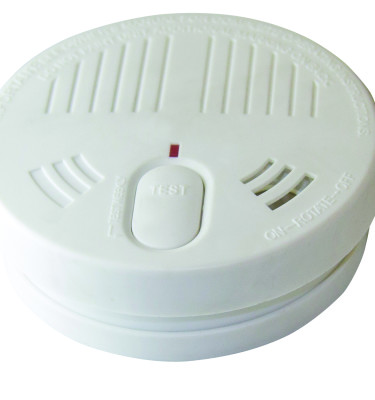A fire alarm is a critical tool for early detection, giving you precious time to evacuate your home. While there are different fire alarm systems available, single station alarms offer a simple and effective solution for many households.
What is a Single Station Fire Alarm?
Single station fire alarms, also known as standalone fire alarms, are self-contained systems designed to detect smoke or heat and emit a loud warning signal in case of fire. Unlike complex networked systems found in large buildings, single station alarms operate independently, making them ideal for smaller structures such as homes, apartments, or small businesses.
Components of Single Station Fire Alarms
- Smoke/Heat Detector: The primary component responsible for sensing signs of fire.
- Alarm Sounder: Emits a loud audible signal to alert occupants.
- Power Source: Typically battery-powered for standalone functionality.
- Control Panel: Basic interface for testing and silencing alarms.
Benefits of Single Station Fire Alarms:
- Affordable: Single station alarms are the most budget-friendly option.
- Easy to Install: No complex wiring is required, making them perfect for DIY enthusiasts.
- Ideal for Smaller Spaces: They provide excellent protection for apartments, studios, or single rooms.
- Mobile: Battery-powered models can be easily moved from room to room.
Things to Consider with Single Station Alarms:
- Limited Coverage: The alarm will only sound at the unit’s location. It might not be heard in distant parts of a larger home.
- Dead Batteries: Regularly test and replace batteries to ensure continuous protection.
- Multiple Stories: Single station alarms may not be sufficient for multi-story dwellings. Building codes often require interconnected systems in these cases.
Who can benefit from a Single Station Fire Alarm?
- Apartment dwellers
- Owners of studios or small homes
- People in need of a temporary solution
- Those on a budget
How To optimizing Your Single Station Fire Alarm?
- Install strategically: Place them in high-risk areas like kitchens and bedrooms.
- Interconnect if possible: Some models allow interconnection with additional units for broader coverage.
- Test monthly: Ensure the alarm is functioning properly.
- Replace batteries annually: Don’t wait for the low battery chirp!
- Consider combination alarms: Look for models with carbon monoxide detection for added safety.
considerations before installing a single station fire alarm
Location and Placement:
- Specificity: Expand on key areas. Instead of just “living spaces,” mention kitchens (leading cause of home fires) and common areas.

Battery Maintenance:
- Frequency: Suggest a specific testing schedule (e.g., monthly) for clarity.
- Battery Life: Briefly mention typical battery lifespan (e.g., one year) to emphasize the importance of replacements.
Compliance with Regulations:
- Actionable Tip: Recommend checking with your local fire department or building code authority for the most up-to-date regulations.
Here’s the revised version incorporating these suggestions:
Considerations Before Installation
- Location and Placement:
- Following manufacturer’s guidelines, ensure proper placement of detectors in key areas like bedrooms, hallways, kitchens, and common areas.fire alarm placement

- Battery Maintenance:
- Regularly test your alarm monthly and replace batteries annually (or sooner if the low-battery chirp sounds).
- Compliance with Regulations:
- Verify that your chosen single station fire alarm meets relevant safety standards and regulations in your area. Check with your local fire department or building code authority for the latest requirements.
Why Single-Station Smoke Alarms Deserve a Spot in Your Home
Single-station smoke alarms aren’t just a safety feature – they’re a silent guardian, standing watch 24/7 against the dangers of fire. Their affordability, ease of installation, and reliable performance make them a perfect fit for apartments, studios, and smaller homes. By taking the time to understand their components, benefits, and considerations, you can empower yourself and your loved ones to make informed decisions that prioritize safety. Investing in a single-station smoke alarm isn’t an expense; it’s a priceless investment in peace of mind, knowing you have a powerful tool in the fight against fire emergencies.


